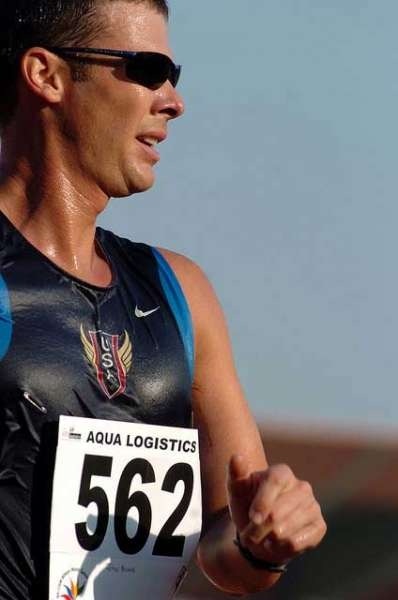Athletes' Game-Day Diets
When it comes to performing on the day of the big game there are many things that factor into the equation. Training, a good night's sleep, timing, the sport — these things are all part of athletes' ability to get in the zone. Another factor in performance? Diet. Not just daily food intake, but athletes' game-day diets.
Your body's absolute favorite source of energy is from carbohydrates. When you eat them, complex starches and sugars are broken down into glucose, their smallest component. Glucose goes easily through your intestinal linings into the bloodstream. It enters the cells and goes into the mitochondria where it starts down a pathway where all the energy stored in the glucose molecules is released and converted into ATP. Think of it sort of like a bio-battery of power that fuels everything in your body.
When glucose is in large supply (after a meal, say), your body releases insulin. Insulin's job is to get all this extra glucose, protein, and fat out of the bloodstream and put it to work. Glucose is turned into energy, protein is used to build muscle and hormones, and fat is put into storage. Excess carbohydrates are also put into storage in a form called glycogen.
When you don't eat for a while, your body reverses the process and takes all those things out of storage to burn for energy. It starts with glycogen, which is very quickly and easily converted back into glucose and thus into energy. It exists in all our muscles and also in the liver. Its purpose is to fuel muscles and the brain during quick energy expenditures like exercise.
When you run out of glycogen your body will start converting protein and fat into glucose to keep the energy pathways moving. But it takes several extra steps and our bodies really don't want to do this. It's also not very efficient. Often if you've not eaten in more than three to four hours, you will feel sleepy and dull because of this — your body just can't make the glucose fast enough to keep up with your needs. The brain is especially sensitive to low glucose levels.
also make you sleepy. Too high a level of carbohydrates in the bloodstream will release a large amount of insulin, which will then very speedily clean out all the glucose, leaving low blood sugar. And too large a meal sets off all kinds of hormonal signals that tell your body to rest.
So, when you are eating for an event, you want to find that balance of the right kind and amount of food to keep energy levels high. Most of this applies more to sustained energy events — a competitive soccer game, a bike race, or a triathlon, rather than a sprint. Short, intense bursts of activity draw their energy from more immediate pathways in the muscles, and performance has more to do with training those muscles and overall diet, rather than anything you can do the day of the event.
But in general for longer-term activities, including strenuous training, there are guidelines to follow. So here are some tips on what to eat during the off-days leading up to the big game as well as what and when you should eat and drink in those last crucial moments to make sure you've done everything you can to be in the zone when it counts.
Click for Athletes' Game-Day Diets Slideshow.

